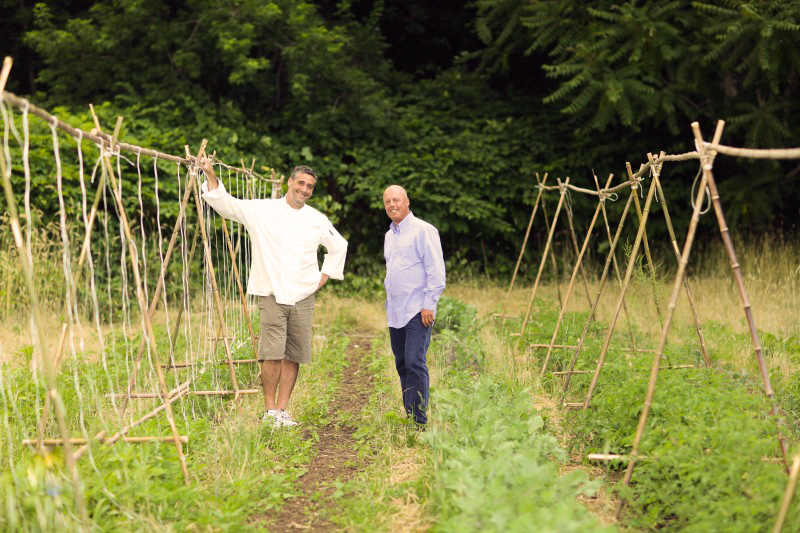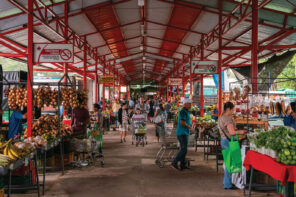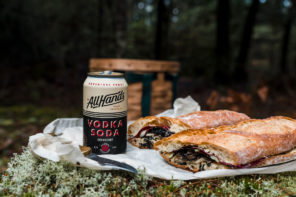Flashback to 1988, before every restaurant claimed to serve “Farm to Table” fare. Young couple Toni Ross and Jeff Salaway become some of the first members of the Quail Hill CSA in Amagansett. They were instantly hooked on the taste and quality of the local produce and decided to partner with Quail Hill founder Scott Chaskey to create a garden behind their recently opened restaurant, Nick & Toni’s.
Then enter young chef Joe Realmuto who started getting his hands dirty in Nick & Toni’s garden from his first day as a summer line cook at the restaurant. He recalls the first couple of years conditioning the soil, when the only thing that would grow were tomatillos, which had no use in the restaurant. “Since they were useless, after a busy service the kitchen staff would head out to the garden and have tomatillo fights to blow off steam,” Joe laughs. By 1995, the garden’s soil was conditioned enough to begin producing viable produce to serve in the restaurant.
Fast forward 20 years and the Nick & Toni’s garden provides the restaurant with fresh, organic produce throughout the growing season. From leeks, snow peas and carrots, to radishes, lettuces and tomatoes, Joe says, “the best thing about having a garden is being able to go out there, pick a cherry tomato and pop it in your mouth … perfection.”
All these years of working Nick & Toni’s garden has taught Joe a few inside tips for you homeowners thinking of planting your own garden:
- Pick a spot close to your house for easy access and maintenance.
- Fence it in! Our local fauna can wreck havoc on your veggies. Deer fence is recommended as well as chicken wire at the bottom to keep out the moles, voles and rabbits.
- Bug Off! The best way to keep the bugs away organically is to manually pick them off or spray the crops with vinegar and water.
- Schedule it! Get in the garden at least three times a week to check the crops.
- Keep the weeds at bay by lining the paths between crops with hay or grass.
- Variety is the spice of life! Go for variety of crops over volume of items. You actually can have to much lettuce!
- Go for the easy items. Easier items to grow include: carrots, lettuce, beets, cucumbers, peppers, eggplant and tomatoes.
- Too many tomatoes? Extend your harvest by pickling your produce. Everything from root veggies to cucumbers and garlic scapes are great when pickled and can be enjoyed all winter long.











